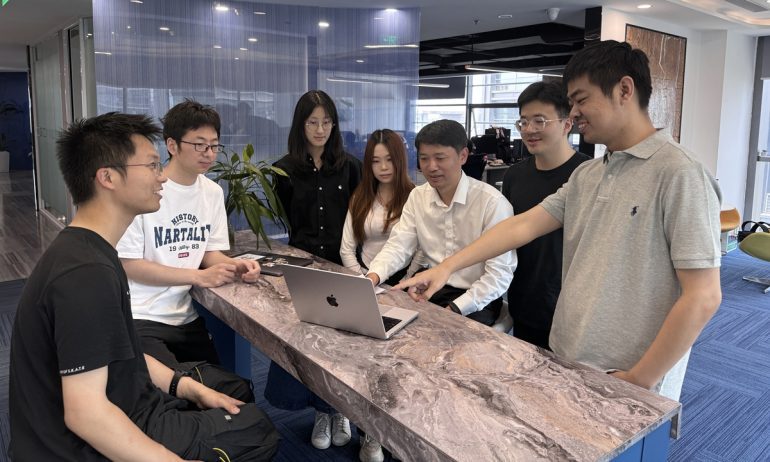- China unveils its pioneering AI-driven medical township, “Agent Hospital,” leveraging advanced AI technology.
- The virtual environment simulates patient interactions with AI doctors and nurses, aiming to revolutionize healthcare delivery.
- Researchers tout benefits including accelerated patient care, enhanced medical training, and potential for widespread telemedicine services.
- Challenges lie in regulatory compliance, technological validation, and ensuring AI-human collaboration for public health safety.
- Despite AI’s advancements, human caregivers remain indispensable for personalized care and legal responsibilities.
Main AI News:
Innovations in Artificial Intelligence (AI) have surged across various sectors, and healthcare stands at the forefront of this revolution.
The buzz generated by Stanford’s AI community last year showcased the potential of intelligent systems in a simulated environment akin to Westworld. Now, Chinese researchers have introduced their own iteration with the creation of an AI-driven medical township!
In a recent exclusive with the Global Times, Chinese researchers delved into the pragmatic implications of this groundbreaking venture in healthcare.
The concept of an AI healthcare hub, where virtual patients receive treatment from AI practitioners, holds profound implications for medical practitioners and the public alike. This pioneering initiative aims to train AI doctor agents within a simulated setting, fostering autonomous evolution and enhancement of disease treatment capabilities.
Tsinghua University’s researchers have birthed the “Agent Hospital,” a virtual realm where all medical interactions are orchestrated by sophisticated intelligent agents powered by large language models (LLM), allowing for seamless autonomous interactions.
Astoundingly, these AI doctors boast the capacity to attend to 10,000 patients within days, a feat that would take human counterparts at least two years. Furthermore, evolved AI doctor agents have achieved an impressive 93.06 percent accuracy rate in diagnosing major respiratory illnesses, as evidenced by their performance on the MedQA dataset (US Medical Licensing Exam questions). They simulate the entire patient care continuum, encompassing consultation, examination, diagnosis, treatment, and follow-up.
Anticipated Practical Benefits
Agent Hospital’s simulated environment revolves around two primary entities: patients and medical professionals. Their roles, generated by GPT-3.5, offer infinite expansion possibilities.
Equipped with various consultation and examination rooms, Agent Hospital relies on a configuration of 14 doctors and four nurses, each fulfilling distinct roles. Doctors formulate precise treatment plans and diagnoses, while nurses provide crucial daily support.
Will this AI healthcare hub translate into tangible benefits for the broader healthcare sector? The resounding answer is yes.
Liu Yang, the lead researcher behind Agent Hospital and also an executive dean at the Institute for AI Industry Research (AIR) at Tsinghua University, believes this innovative concept will revolutionize diagnostic and treatment methodologies, ushering in substantial advantages for medical professionals and the public.
For instance, the virtual patient approach enables real doctors to hone their skills by treating simulated cases, offering unparalleled training opportunities for medical students. By confronting a diverse array of AI-generated patient scenarios, students can confidently propose treatment plans without the risk of real-world repercussions from decision-making errors.
This simulated training environment fosters risk-free practice in diagnosis and treatment, nurturing a cadre of highly competent doctors, according to Liu.
Furthermore, by marrying virtual patients with AI doctors, the potential for online telemedicine services becomes a reality. Leveraging a vast repository of medical knowledge, AI practitioners can manage thousands, even millions, of cases efficiently.
Liu predicts a horizon of high-quality, affordable, and accessible healthcare services for the public, as AI diagnostic capabilities transition from the virtual realm to practical application in real-world scenarios.
Looking Forward: Challenges and Prospects
Some online commentators believe that AI simulations can explore avenues beyond human capacity and time constraints, envisioning a future where automated hospitals save countless lives.
Liu discloses that after approximately six months of intensive research and development, Agent Hospital is nearing readiness for practical deployment. With a targeted launch slated for the latter half of 2024, the focus remains on refining specific application domains.
However, despite the optimistic outlook, challenges loom large in the implementation and adoption of AI-driven diagnosis and treatment methodologies.
Liu emphasizes the paramount importance of adhering to national medical regulations, validating technological maturity rigorously, and exploring avenues for effective AI-human collaboration to mitigate potential risks to public health.
AI: A Complement, Not a Replacement
As the medical landscape evolves with the rapid advancement of AI technology, it’s crucial to acknowledge that while AI healthcare can augment precision and efficiency, it can never supplant human caregivers.
In the realm of medical practice, uncertainties abound, with each patient presenting a unique set of physiological, psychological, and sociological factors. Despite technological prowess, the nuances of human interaction and individualized care remain irreplaceable.
Dr. Dong Jiahong, academician of the Chinese Academy of Engineering and dean of the School of Clinical Medicine at Tsinghua University, underscores the essence of medicine as a science of compassion. While AI healthcare may excel in certain domains, its inherent “coldness” cannot replicate the warmth and empathy essential in patient care. Moreover, legal accountabilities during treatment necessitate the presence of human physicians.
Conclusion:
The emergence of China’s AI Hospital Town signals a transformative shift in healthcare, promising accelerated patient care and expanded medical services through AI technology. However, while AI augments efficiency, human caregivers retain irreplaceable roles in personalized care and legal accountability, highlighting the need for careful integration of AI within existing healthcare frameworks. Market players should anticipate growing demand for AI-driven healthcare solutions while prioritizing ethical and regulatory considerations to ensure safe and effective implementation.

